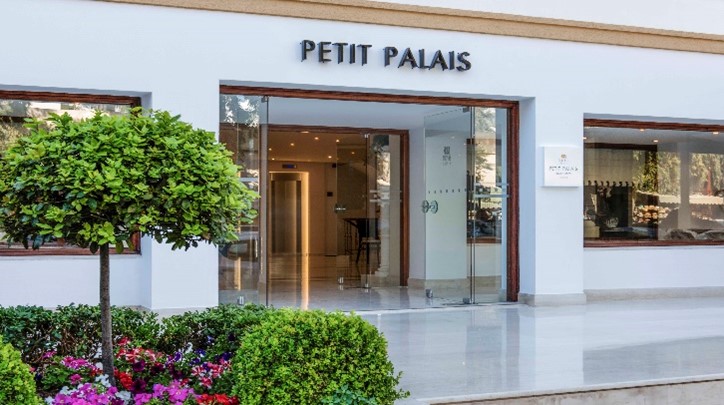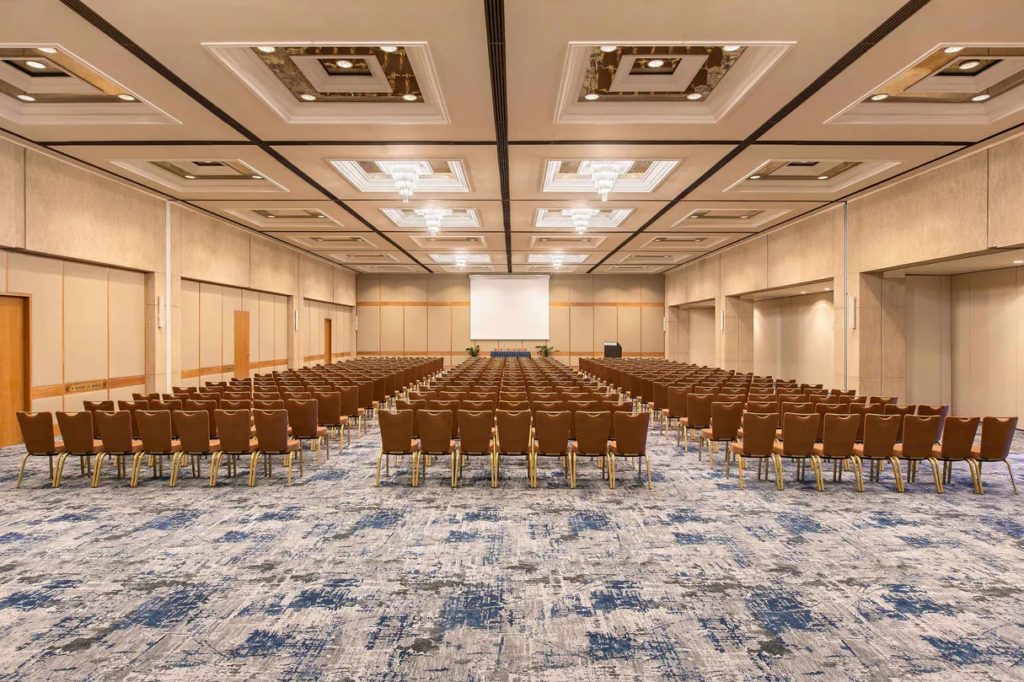
Industry Workshops
Date/Time: Wednesday, June 7 ⋅ 10:50am – 12:20pm
Room: Nafsika B
Title: How AI and Signal Processing Solve Real-World Applications with MATLAB
Abstract:
As research continues to develop cutting-edge AI models across a range of signal processing tasks, AI is used in an even wider and more diverse set of Industry applications. When using machine learning and deep learning in the real world away from the limelight, engineers aim to take advantage of state-of-the-art results while also having to work with much smaller datasets and striving to contain implementation costs. Along with an increasing use of machine learning and deep learning, they also adopt a growing variety of signal processing methods, for example to lower the complexity of AI models and to improve the quality of signal datasets.
In this workshop, you will learn about some of the latest MATLAB updates for Signal Processing, Machine Learning, and Deep Learning, including through practical code examples. The highlights will include:
- Labeling, augmenting, and synthesizing signal datasets
- Improving datasets and models through preprocessing and feature extraction
- Creating and training new deep learning architectures in MATLAB
- Using state-of-the-art AI models for transfer learning
- Accelerating learning and feature extraction with local and cloud-based GPUs
- Generating embedded software prototypes including signal processing and deep learning
Some familiarity with MATLAB will be desirable but not strictly required.
Presenter bios:
Frantz Bouchereau is the engineering manager of the team responsible for Signal Processing Toolbox and Wavelet Toolbox at MathWorks where he has been since 2008. He received his Ph.D. in signal processing and communications from Northeastern University, where he specialized in statistical signal processing and wireless communications.
Gabriele Bunkheila is a product manager at MathWorks, where he coordinates the strategy of MATLAB toolboxes for signal processing. After joining MathWorks in 2008, he worked as a signal processing application engineer for several years, supporting MATLAB and Simulink users across industries from algorithm design to real-time implementations. Before MathWorks, he held a number of research and development positions. He has a master’s degree in physics and a Ph.D. in communications engineering.
Date/Time: Sunday, June 4⋅2:00 – 5:30pm
Title: Workshop on AI-empowered Semantic/Feature-based Communications towards Wireless Metaverse
Description:
The forthcoming Metaverse will be the byproduct of a convergence of multiple technologies ranging from extended reality (XR) to artificial intelligence (AI), that must come together to create a second life. In Metaverse applications represented video, AI shines brightly for its powerful feature extraction and generation capabilities, providing key traction of transforming communication links from a mere pipe medium to a semantic/feature-based system. Such AI-empowered semantic communications are viewed as a revolutionary paradigm that can potentially transform how we design and operate wireless communication systems, equipping them with a novel apparatus for decision-making mechanisms that can enable the seamless operation of metaverse applications or enhance the orchestration of network resources.
Indeed, the emergence of the Metaverse and its use-cases requires a paradigm shift from current AI-empowered wireless networks towards AI-native wireless networks that embed contextual information from a Metaverse environment into minimal yet expressive representations. Moreover, signal processing, transmission protocols, and network architecture, including physical (PHY) layer processing, medium access control (MAC), and air-interface in general should be redesigned carefully, or even cross-layer interacted to build a pathway to semantic communications. Under a specific QoE evaluation, how to combine semantic/feature information extracted from raw data with network and channel conditions may need to be investigated according to different applications. In particular, multimedia content (e.g., 2D/3D video, haptic, holographic) requiring ultra high throughput and low latency is expected to dominate the mobile data traffic in wireless Metaverse, which could be studied as a typical Real-Time Broadband Communication (RTBC) application.
This workshop aims to bring together the leading researchers in the field, both from academia and industry, to exchange their views on Semantic/Feature-based Communications towards Wireless Metaverse. The topics of interest include but not limited to: Cross-layer interaction/optimization, Quality of experience (QoE) evaluation, Network architectures and protocols for semantic/feature-based communications, Semantics-aware sampling and transmission policy, Joint semantic/feature and channel coding, End-to-end communications, Knowledge-driven semantic language and representation, Intelligent transceiver in wireless Metaverse.
Workshop Organizers:
General Chairs
Yingpei Lin, Huawei Technologies, China, linyingpei@huawei.com
Geoffrey Ye Li, Imperial College London, Geoffrey.Li@imperial.ac.uk
Contact
Yi Qin, Huawei Technologies, China, qinyi4@huawei.com
Schedule
| Time Slots | Scheduled Sessions | Speaker |
| 14:00 – 14:10 | Workshop Opening Speech | Yi Qin |
| 14:10 – 14:35 | Invited Talk #1 (Less Data, More Knowledge: Reasoning Foundations of Semantic Communication Networks) | Walid Saad |
| 14:35 – 15:00 | Invited Talk #2 (Overview on Semantic Communications) | Geoffrey Ye Li |
| 15:00 – 15:25 | Invited Talk #3 (From Data Network to Knowledge Networks) | Merouane Debbah |
| 15:30 – 16:00 | Coffee break | |
| 16:00 – 16:25 | Invited Talk #4 (How does feature-based multimedia communications change future wireless connection?) | Yingpei Lin |
| 16:25 – 16:50 | Invited Talk #5 (Semantic Communications: Opportunities and Challenges) | Guangyi Liu |
| 16:50 – 17:30 | Panel | ALL, moderator: Yi Qin |
- A short biography of the Speakers
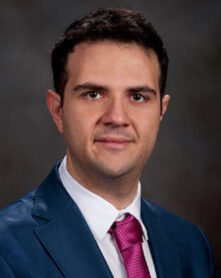 Walid Saad received his Ph.D degree from the University of Oslo, Norway in 2010. He is currently a Professor at Virginia Tech’s Electrical and Computer Engineering Department where he leads the Network sciEnce, Wireless, and Security (NEWS) group. He is also the Next-G Wireless Faculty Lead at Virginia Tech’s Innovation Campus. His research interests include wireless networks (5G/6G/beyond), machine learning, game theory, security, UAVs, semantic communications, cyber-physical systems, and network science. Dr. Saad is a Fellow of the IEEE. He is also the recipient of the NSF CAREER award in 2013 and the Young Investigator Award from the Office of Naval Research (ONR) in 2015. He was the (co-)author of eleven conference best paper awards at IEEE WiOpt in 2009, ICIMP in 2010, IEEE WCNC in 2012, IEEE PIMRC in 2015, IEEE SmartGridComm in 2015, EuCNC in 2017, IEEE GLOBECOM (2018 and 2020), IFIP NTMS in 2019, IEEE ICC (2020 and 2022). His research was recognized with the prestigious IEEE Fred W. Ellersick Prize from the IEEE Communications Society (ComSoc) in 2015 and 2022. He was also a co-author of the papers that received the 2019 and 2021 IEEE Communications Society Young Author Best Paper award. Other recognitions include the 2017 IEEE ComSoc Best Young Professional in Academia award, the 2018 IEEE ComSoc Radio Communications Committee Early Achievement Award, and the 2019 IEEE ComSoc Communication Theory Technical Committee Early Achievement Award. He has been annually listed in the Clarivate Web of Science Highly Cited Researcher List since 2019. Dr. Saad is currently the Editor-in-Chief for the IEEE Transactions on Machine Learning in Communications and Networking.
Walid Saad received his Ph.D degree from the University of Oslo, Norway in 2010. He is currently a Professor at Virginia Tech’s Electrical and Computer Engineering Department where he leads the Network sciEnce, Wireless, and Security (NEWS) group. He is also the Next-G Wireless Faculty Lead at Virginia Tech’s Innovation Campus. His research interests include wireless networks (5G/6G/beyond), machine learning, game theory, security, UAVs, semantic communications, cyber-physical systems, and network science. Dr. Saad is a Fellow of the IEEE. He is also the recipient of the NSF CAREER award in 2013 and the Young Investigator Award from the Office of Naval Research (ONR) in 2015. He was the (co-)author of eleven conference best paper awards at IEEE WiOpt in 2009, ICIMP in 2010, IEEE WCNC in 2012, IEEE PIMRC in 2015, IEEE SmartGridComm in 2015, EuCNC in 2017, IEEE GLOBECOM (2018 and 2020), IFIP NTMS in 2019, IEEE ICC (2020 and 2022). His research was recognized with the prestigious IEEE Fred W. Ellersick Prize from the IEEE Communications Society (ComSoc) in 2015 and 2022. He was also a co-author of the papers that received the 2019 and 2021 IEEE Communications Society Young Author Best Paper award. Other recognitions include the 2017 IEEE ComSoc Best Young Professional in Academia award, the 2018 IEEE ComSoc Radio Communications Committee Early Achievement Award, and the 2019 IEEE ComSoc Communication Theory Technical Committee Early Achievement Award. He has been annually listed in the Clarivate Web of Science Highly Cited Researcher List since 2019. Dr. Saad is currently the Editor-in-Chief for the IEEE Transactions on Machine Learning in Communications and Networking.
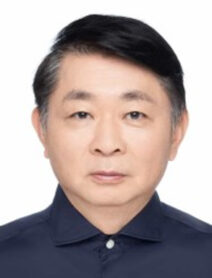 Geoffrey Ye Li has been a Chair Professor at Imperial College London since 2020. Before moving to Imperial, he was with Georgia Institute of Technology as a Professor for 20 years and with AT&T Labs – Research in New Jersey, USA, as a Principal Technical Staff Member for five years. His general research interests include statistical signal processing and machine learning for wireless communications. In these areas, he has published over 600 referred journal and conference papers in addition to over 40 granted patents. His publications have been cited over 59,000 times with H-index of over 110 and he has been listed as the World’s Most Influential Scientific Mind, also known as a Highly-Cited Researcher, by Thomson Reuters almost every year since 2001. He has been an IEEE Fellow since 2006 and an IET Fellow since 2021 and received several prestigious awards from IEEE ComSoc, IEEE VTS, and IEEE SPS, including 2019 IEEE ComSoc Edwin Howard Armstrong Achievement Award.
Geoffrey Ye Li has been a Chair Professor at Imperial College London since 2020. Before moving to Imperial, he was with Georgia Institute of Technology as a Professor for 20 years and with AT&T Labs – Research in New Jersey, USA, as a Principal Technical Staff Member for five years. His general research interests include statistical signal processing and machine learning for wireless communications. In these areas, he has published over 600 referred journal and conference papers in addition to over 40 granted patents. His publications have been cited over 59,000 times with H-index of over 110 and he has been listed as the World’s Most Influential Scientific Mind, also known as a Highly-Cited Researcher, by Thomson Reuters almost every year since 2001. He has been an IEEE Fellow since 2006 and an IET Fellow since 2021 and received several prestigious awards from IEEE ComSoc, IEEE VTS, and IEEE SPS, including 2019 IEEE ComSoc Edwin Howard Armstrong Achievement Award.
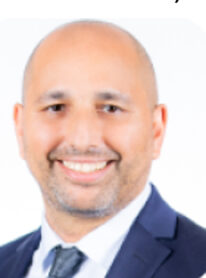 Mérouane Debbah is Chief Researcher at the Technology Innovation Institute in Abu Dhabi. He is a Professor at Centralesupelec (France) and an Adjunct Professor with the Department of Machine Learning at the Mohamed Bin Zayed University of Artificial Intelligence in Abu Dhabi. He received the M.Sc. and Ph.D. degrees from the Ecole Normale Supérieure Paris-Saclay, France. He was with Motorola Labs, Saclay, France, from 1999 to 2002, and then with the Vienna Research Center for Telecommunications, Vienna, Austria, until 2003. From 2003 to 2007, he was an Assistant Professor with the Mobile Communications Department, Institut Eurecom, Sophia Antipolis, France. In 2007, he was appointed Full Professor at CentraleSupelec, Gif-sur-Yvette, France. From 2007 to 2014, he was the Director of the Alcatel-Lucent Chair on Flexible Radio. From 2014 to 2021, he was Vice-President of the Huawei France Research Center. He was jointly the director of the Mathematical and Algorithmic Sciences Lab as well as the director of the Lagrange Mathematical and Computing Research Center. Since 2021, he is leading the AI & Digital Science Research centers at the Technology Innovation Institute. He has managed 8 EU projects and more than 24 national and international projects. His research interests lie in fundamental mathematics, algorithms, statistics, information, and communication sciences research. He holds more than 40 patents. He is an IEEE Fellow, a WWRF Fellow, a Eurasip Fellow, an AAIA Fellow, an Institut Louis Bachelier Fellow and a Membre émérite SEE. He was a recipient of the ERC Grant MORE (Advanced Mathematical Tools for Complex Network Engineering) from 2012 to 2017. He was a recipient of the Mario Boella Award in 2005, the IEEE Glavieux Prize Award in 2011, the Qualcomm Innovation Prize Award in 2012, the 2019 IEEE Radio Communications Committee Technical Recognition Award and the 2020 SEE Blondel Medal. He received more than 25 best paper awards, among which the 2007 IEEE GLOBECOM Best Paper Award, the Wi-Opt 2009 Best Paper Award, the 2010 Newcom++ Best Paper Award, the WUN CogCom Best Paper 2012 and 2013 Award, the 2014 WCNC Best Paper Award, the 2015 ICC Best Paper Award, the 2015 IEEE Communications Society Leonard G. Abraham Prize, the 2015 IEEE Communications Society Fred W. Ellersick Prize, the 2016 IEEE Communications Society Best Tutorial Paper Award, the 2016 European Wireless Best Paper Award, the 2017 Eurasip Best Paper Award, the 2018 IEEE Marconi Prize Paper Award, the 2019 IEEE Communications Society Young Author Best Paper Award, the 2021 Eurasip Best Paper Award, the 2021 IEEE Marconi Prize Paper Award, the 2022 IEEE Communications Society Outstanding Paper Award, the 2022 ICC Best paper Award, the 2022 IEEE GLOBECOM Best Paper Award, 2022 IEEE TAOS TC Best GCSN Paper Award, the 2022 IEEE International Conference on Metaverse Best Paper Award as well as the Valuetools 2007, Valuetools 2008, CrownCom 2009, Valuetools 2012, SAM 2014, and 2017 IEEE Sweden VT-COM-IT Joint Chapter best student paper awards. He is an Associate Editor-in-Chief of the journal Random Matrix: Theory and Applications. He was an Associate Area Editor and Senior Area Editor of the IEEE TRANSACTIONS ON SIGNAL PROCESSING from 2011 to 2013 and from 2013 to 2014, respectively. From 2021 to 2022, he served as an IEEE Signal Processing Society Distinguished Industry Speaker
Mérouane Debbah is Chief Researcher at the Technology Innovation Institute in Abu Dhabi. He is a Professor at Centralesupelec (France) and an Adjunct Professor with the Department of Machine Learning at the Mohamed Bin Zayed University of Artificial Intelligence in Abu Dhabi. He received the M.Sc. and Ph.D. degrees from the Ecole Normale Supérieure Paris-Saclay, France. He was with Motorola Labs, Saclay, France, from 1999 to 2002, and then with the Vienna Research Center for Telecommunications, Vienna, Austria, until 2003. From 2003 to 2007, he was an Assistant Professor with the Mobile Communications Department, Institut Eurecom, Sophia Antipolis, France. In 2007, he was appointed Full Professor at CentraleSupelec, Gif-sur-Yvette, France. From 2007 to 2014, he was the Director of the Alcatel-Lucent Chair on Flexible Radio. From 2014 to 2021, he was Vice-President of the Huawei France Research Center. He was jointly the director of the Mathematical and Algorithmic Sciences Lab as well as the director of the Lagrange Mathematical and Computing Research Center. Since 2021, he is leading the AI & Digital Science Research centers at the Technology Innovation Institute. He has managed 8 EU projects and more than 24 national and international projects. His research interests lie in fundamental mathematics, algorithms, statistics, information, and communication sciences research. He holds more than 40 patents. He is an IEEE Fellow, a WWRF Fellow, a Eurasip Fellow, an AAIA Fellow, an Institut Louis Bachelier Fellow and a Membre émérite SEE. He was a recipient of the ERC Grant MORE (Advanced Mathematical Tools for Complex Network Engineering) from 2012 to 2017. He was a recipient of the Mario Boella Award in 2005, the IEEE Glavieux Prize Award in 2011, the Qualcomm Innovation Prize Award in 2012, the 2019 IEEE Radio Communications Committee Technical Recognition Award and the 2020 SEE Blondel Medal. He received more than 25 best paper awards, among which the 2007 IEEE GLOBECOM Best Paper Award, the Wi-Opt 2009 Best Paper Award, the 2010 Newcom++ Best Paper Award, the WUN CogCom Best Paper 2012 and 2013 Award, the 2014 WCNC Best Paper Award, the 2015 ICC Best Paper Award, the 2015 IEEE Communications Society Leonard G. Abraham Prize, the 2015 IEEE Communications Society Fred W. Ellersick Prize, the 2016 IEEE Communications Society Best Tutorial Paper Award, the 2016 European Wireless Best Paper Award, the 2017 Eurasip Best Paper Award, the 2018 IEEE Marconi Prize Paper Award, the 2019 IEEE Communications Society Young Author Best Paper Award, the 2021 Eurasip Best Paper Award, the 2021 IEEE Marconi Prize Paper Award, the 2022 IEEE Communications Society Outstanding Paper Award, the 2022 ICC Best paper Award, the 2022 IEEE GLOBECOM Best Paper Award, 2022 IEEE TAOS TC Best GCSN Paper Award, the 2022 IEEE International Conference on Metaverse Best Paper Award as well as the Valuetools 2007, Valuetools 2008, CrownCom 2009, Valuetools 2012, SAM 2014, and 2017 IEEE Sweden VT-COM-IT Joint Chapter best student paper awards. He is an Associate Editor-in-Chief of the journal Random Matrix: Theory and Applications. He was an Associate Area Editor and Senior Area Editor of the IEEE TRANSACTIONS ON SIGNAL PROCESSING from 2011 to 2013 and from 2013 to 2014, respectively. From 2021 to 2022, he served as an IEEE Signal Processing Society Distinguished Industry Speaker
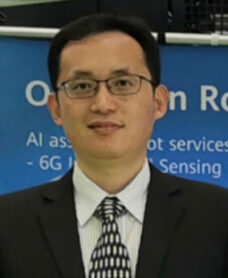 Dr. Yingpei Lin is the director of Munich Advanced Wireless Technology Laboratory of Huawei Munich Research Center and the head of RAN Research Department of Huawei Wireless. He has been with Huawei in 2012, with extensive knowledge and expertise in IEEE 802.11 and 3GPP standards. Dr. Lin has been leading physical layer research and RAN research planning since 2017, and is currently spearheading the company’s 6G research efforts in Europe. He is also an active contributor to the 5GAA Industry Initiatives, serving as a board member.
Dr. Yingpei Lin is the director of Munich Advanced Wireless Technology Laboratory of Huawei Munich Research Center and the head of RAN Research Department of Huawei Wireless. He has been with Huawei in 2012, with extensive knowledge and expertise in IEEE 802.11 and 3GPP standards. Dr. Lin has been leading physical layer research and RAN research planning since 2017, and is currently spearheading the company’s 6G research efforts in Europe. He is also an active contributor to the 5GAA Industry Initiatives, serving as a board member.
 Guangyi Liu received his Ph.D. degree from the Beijing University of Posts and Telecommunications. He is currently a fellow and 6G lead specialist at China Mobile Research Institute, Beijing 100053, China, where he is in charge of wireless technology research and development, including 5G and 6G.
Guangyi Liu received his Ph.D. degree from the Beijing University of Posts and Telecommunications. He is currently a fellow and 6G lead specialist at China Mobile Research Institute, Beijing 100053, China, where he is in charge of wireless technology research and development, including 5G and 6G.
Date/Time: Monday, June 5 ⋅ 9:00am – 12:00pm
Title: “Audio at Meta: From real-time communications to the Metaverse”
Abstract:
This workshop will walk the audience through the broad work around audio taking place inside Meta. The content will cover a variety of topics such real-time communications at scale, content creation, AR/VR, devices and new applications in neural interfaces. The presenters will discuss the interesting problems and research challenges they face across these areas and the exciting work being done.
09:00-10:00 Session 1
| Elias Kokkinis | Audio for Short Form Video (SFV) creation |
| Sriram Srinivasan | Audio processing for real-time communication on Meta’s family of apps |
| Ozlem Kalinli | Speech Recognition for Voice Interfaces and AR/VR |
| Michael Mandel | Applications of speech and audio processing in non-invasive brain-computer interfaces at Meta |
10:00-10:30 Coffee break
10:30-12:00 Session 2
| Christian Fuegen | Towards Egocentric Multimodal Perception for AR Glasses – Devices, Datasets, and Challenges |
| Buye Xu | Augmented hearing for cocktail-party scenarios |
| Moto Hira | Advanced multimedia processing with TorchAudio |
| Yang Liu | Streaming cross-attention alignment for echo cancellation |
| Ishwarya Ananthabhotla | Building Virtual spaces with realistic audio |
Presenters:
- Buye Xu, Research Lead
- Christian Fuegen, Engineering Manager
- Elias Kokkinis, Engineering Manager
- Ishwarya Ananthabhotla, Research Scientist
- Michael Mandel, Research Scientist
- Moto Hira, Software Engineer
- Ozlem Kalinli, Research Scientist Manager
- Sriram Srinivasan, Engineering Manager
- Yang Liu, Research Scientist

















